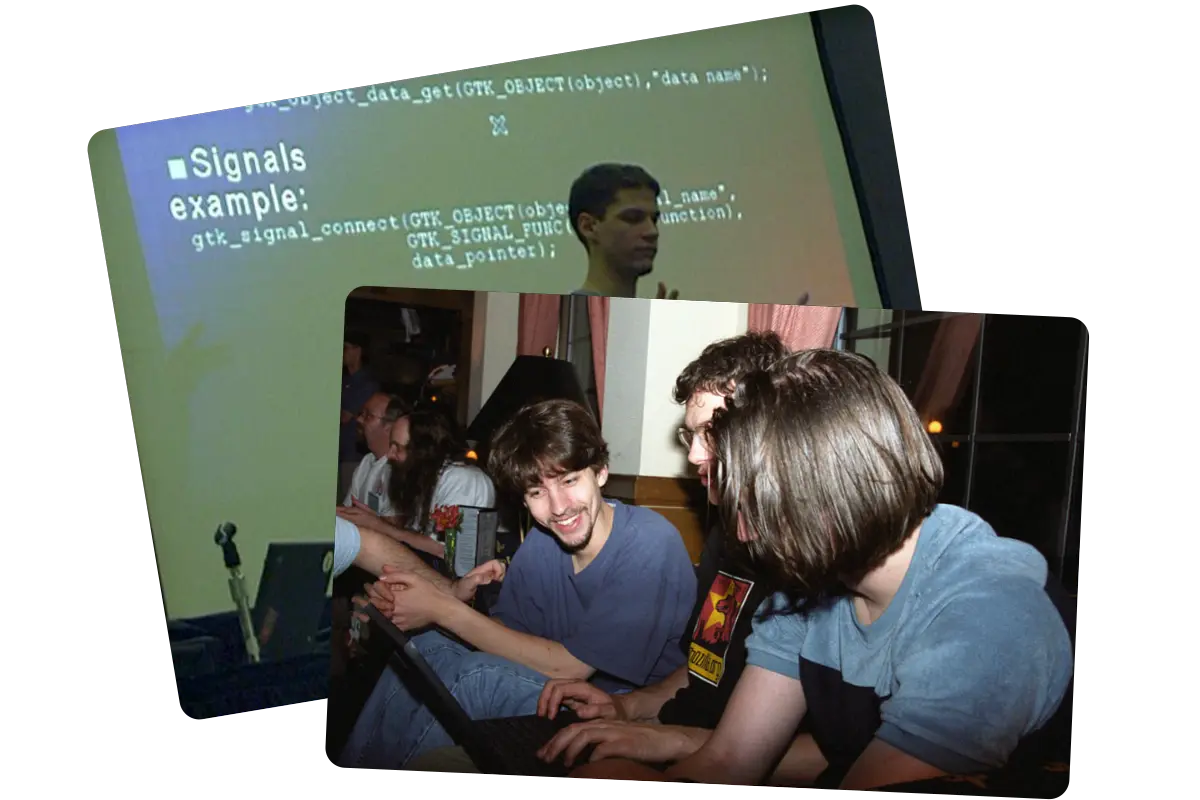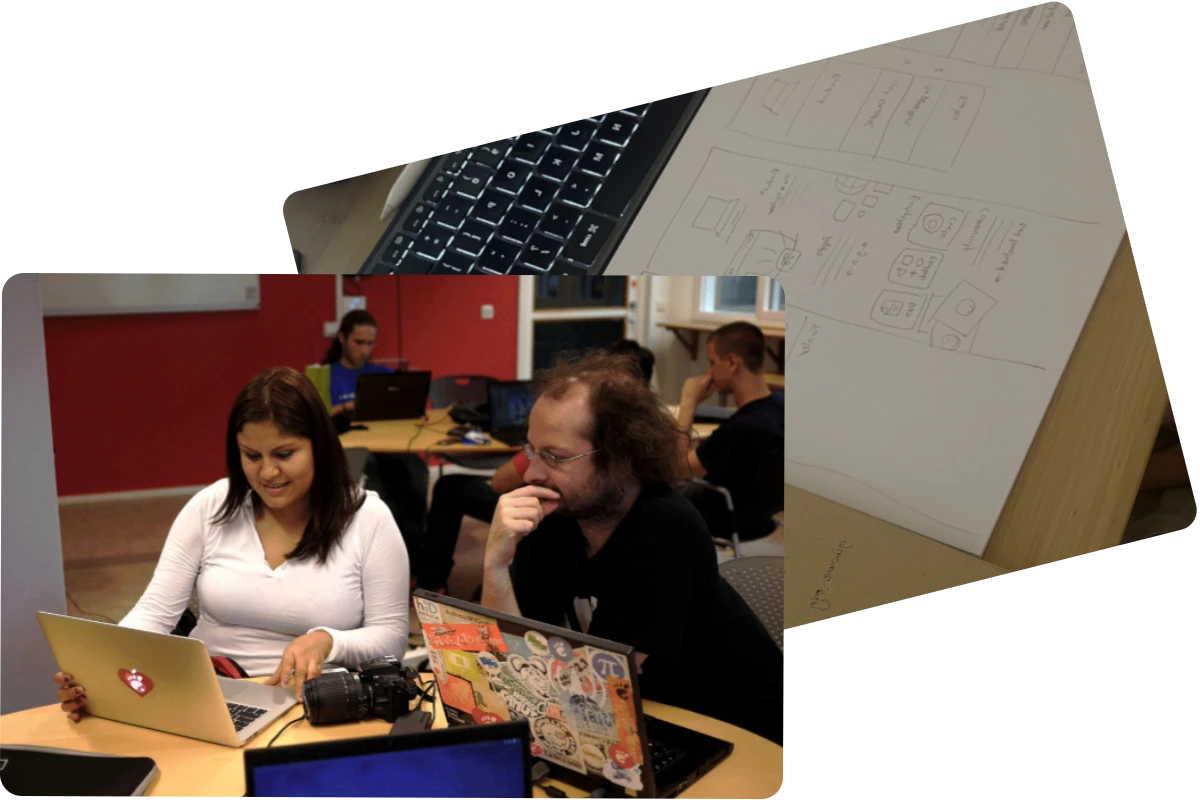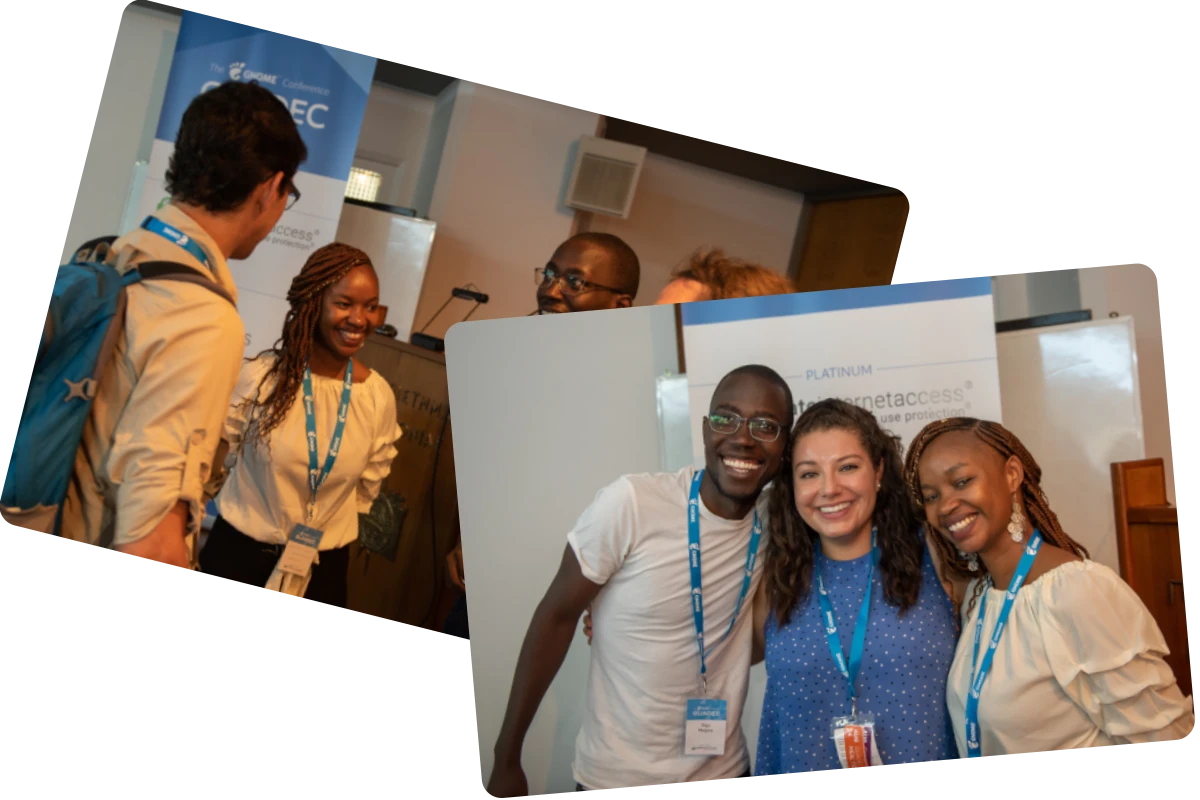The GNOME Story
The GNOME project was founded in 1997 by two students, Miguel de Icaza and Federico Mena. Their goal: to take on the tech giants of the day, and build a completely free desktop operating system. From that small beginning, GNOME grew to become a global phenomenon. Its community spread across the world, and the project spawned many components which themselves went on to become critical elements of Linux-based systems.
Today, GNOME's software is used by millions of people the world over. It provides the user experience for all the main Linux distributions, and the project continues to develop vital software which is relied upon far beyond the desktop.


